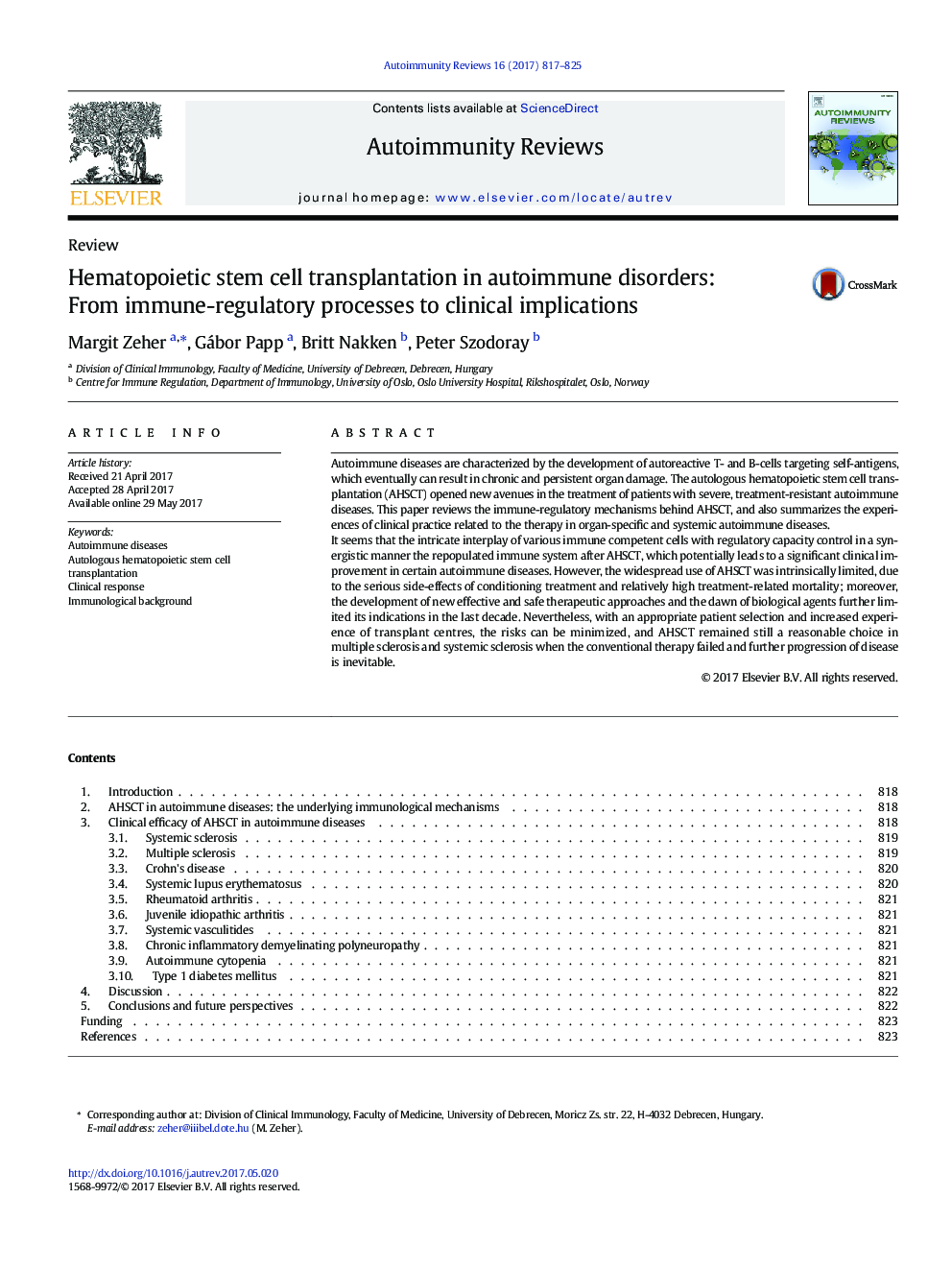| کد مقاله | کد نشریه | سال انتشار | مقاله انگلیسی | نسخه تمام متن |
|---|---|---|---|---|
| 5665361 | 1407745 | 2017 | 9 صفحه PDF | دانلود رایگان |
- Intricate interplay of various immune cells contributes to the development of tolerance after AHSCT.
- AHSCT carried out before any irreversible organ damage leads to the best clinical outcome.
- Less treatment-related complications would make the application of AHSCT more widespread.
- Impact of AHSCT decreased in some diseases due to the development of other novel treatments.
- In certain autoimmune diseases AHSCT can be good choice when conventional therapy failed.
Autoimmune diseases are characterized by the development of autoreactive T- and B-cells targeting self-antigens, which eventually can result in chronic and persistent organ damage. The autologous hematopoietic stem cell transplantation (AHSCT) opened new avenues in the treatment of patients with severe, treatment-resistant autoimmune diseases. This paper reviews the immune-regulatory mechanisms behind AHSCT, and also summarizes the experiences of clinical practice related to the therapy in organ-specific and systemic autoimmune diseases.It seems that the intricate interplay of various immune competent cells with regulatory capacity control in a synergistic manner the repopulated immune system after AHSCT, which potentially leads to a significant clinical improvement in certain autoimmune diseases. However, the widespread use of AHSCT was intrinsically limited, due to the serious side-effects of conditioning treatment and relatively high treatment-related mortality; moreover, the development of new effective and safe therapeutic approaches and the dawn of biological agents further limited its indications in the last decade. Nevertheless, with an appropriate patient selection and increased experience of transplant centres, the risks can be minimized, and AHSCT remained still a reasonable choice in multiple sclerosis and systemic sclerosis when the conventional therapy failed and further progression of disease is inevitable.
Journal: Autoimmunity Reviews - Volume 16, Issue 8, August 2017, Pages 817-825
